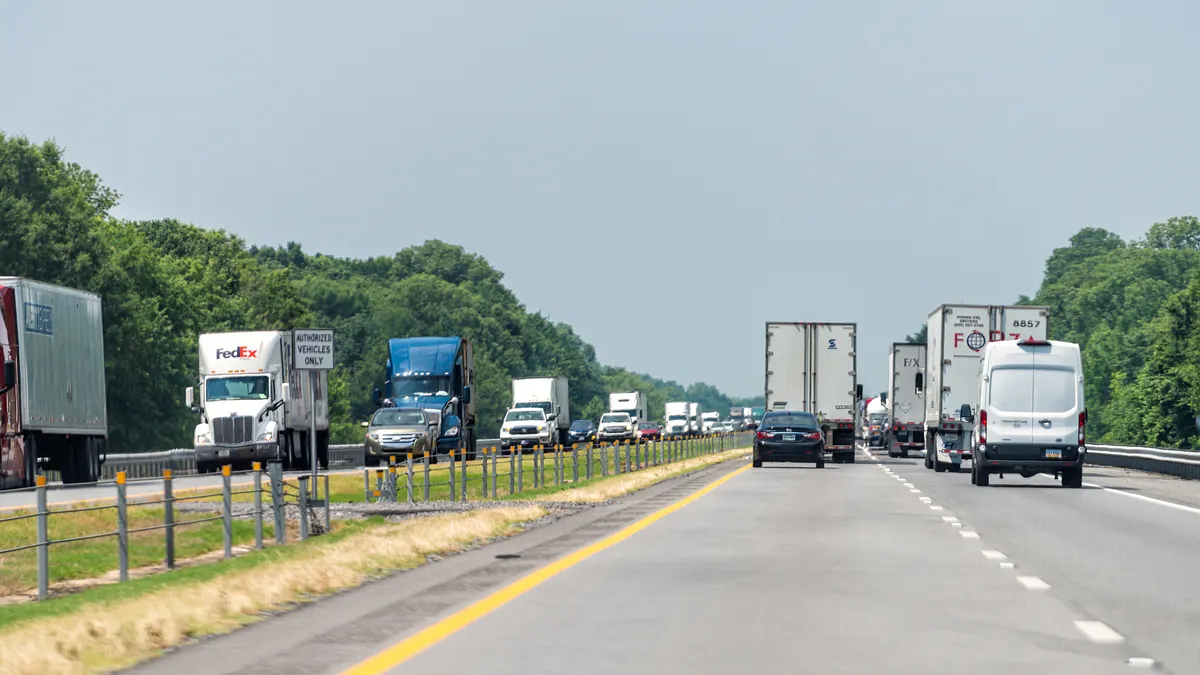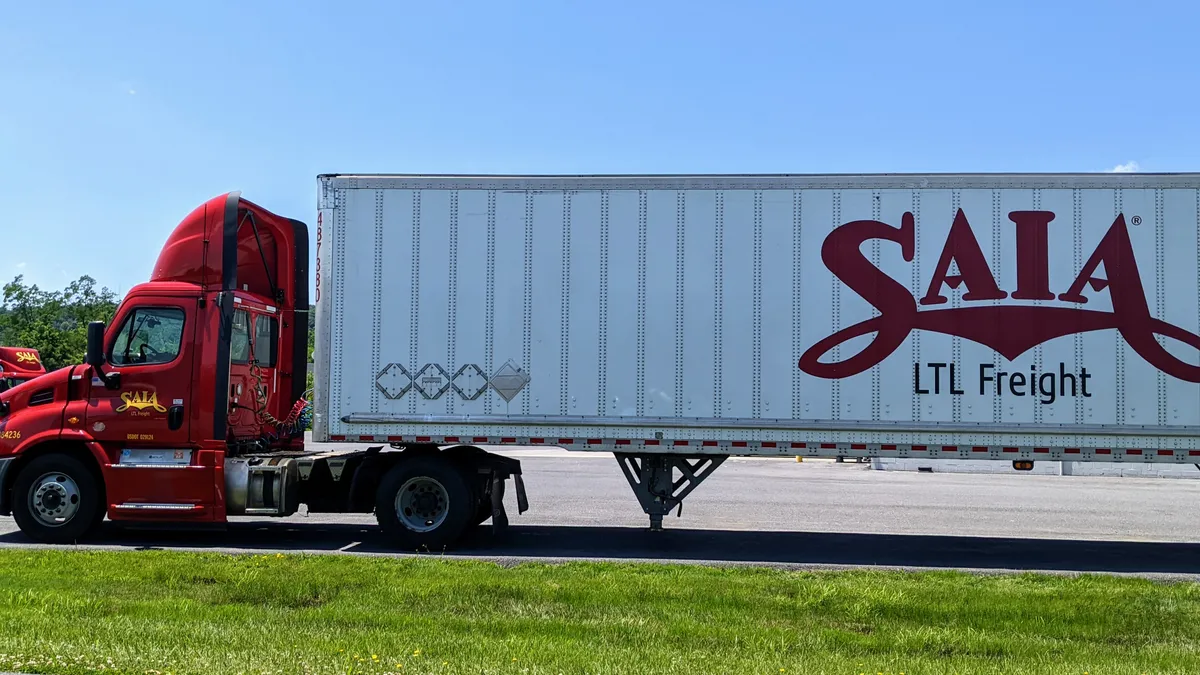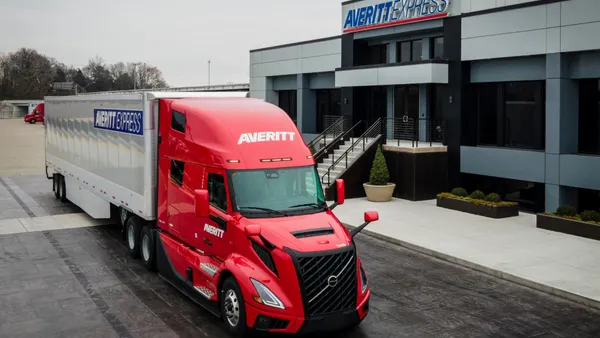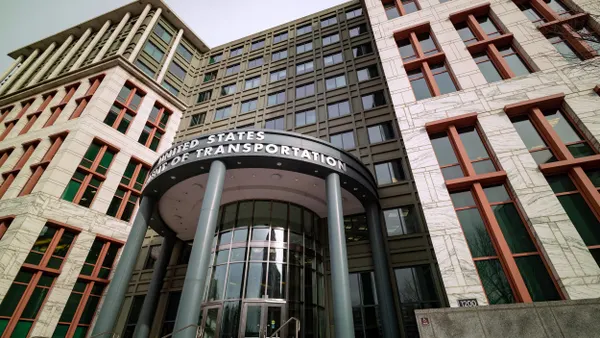Dive Brief:
- Konexial, a telematics and fleet management service, announced on Tuesday a telemedicine service allowing drivers to see a doctor right away. The company is partnering with Everywhere Care, a telemedicine service to allow free access for 30 days.
- Fleets and their vendors are stepping up health screenings and preventative measures, as COVID-19 spreads across the United States. UrgentCareTravel, a company that runs clinics at 13 truck stops, said it is seeing increased communication from fleets about using the company's services.
- Fleets and trucking-related firms are concerned drivers will get sick, or won't get treatment, while the nation is more dependent on freight and parcel delivery during the COVID-19 crisis.
Dive Insight:
Many firms are turning to telemedicine and other healthcare alternatives during the COVID-19 outbreak to help drivers on the road get the care they need.
"We know how hard — and often impossible — it can be for truck drivers to stop and get the care and-or advice for medical issues both large and small," said Ken Evans, Konexial CEO, in a statement. Evans said the service will help drivers determine symptoms quickly, and get care for themselves and their families. Medical and behavioral care will be accessible through the service 24 hours a day, according to the release. A telehealth physician can usually be reached in 23 minutes. Health insurance is not required to join and use the service. After 30 days, the fleet or the owner-operator would pick up the $15 monthly fee.
Another option for truck drivers is UrgentCareTravel, which operates 13 clinics across the 48 lower states. The clinics are located at Pilot Flying J truck stops, making them more accessible. Many independent drivers and owner-operators do not have health insurance. But the parking issue and location are a big impediment to care too, said Mitch Strobin, UrgentCareTravel senior vice president. At a truck stop clinic, the drivers can save time and dollars. "If the wheels are not moving, they are not making money," Strobin told Transport Dive. "[A visit] will save them four to six hours of downtime."
The business intends to expand to 40 sites, and will soon open a 14th location, in Ohio. The COVID-19 outbreak has caused a flurry of inquiries, he said.
"We are getting a lot of interest now," said Strobin. "[The outbreak] is reintroducing us to a lot of fleets." Strobin's company was already at work on conducting physicals for drivers. His firm has conducted 25,000 such exams for the U.S. Department of Transportation. Strobin said a wider need for his company's services is apparent, as the company found 48% of drivers have a chronic condition that restricts their CDLs. The conditions mean health must be managed effectively.
For now, COVID-19 is the condition that has the fleets' top attention, and some are taking preventative measures. Hirschbach, an Iowa carrier with 1,800 drivers, told Transport Dive that it is preparing "on the road" kits for its drivers. The kits will have hand sanitizer, lotion, "healthy" snacks, bottled water, EmergenC packs and latex gloves for pumping fuel. The company is also reimbursing any driver up to $25 for purchases of sanitizing materials, according to Bianca Sanchez, a Hirschbach spokesperson.








